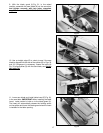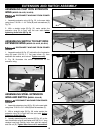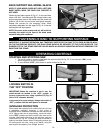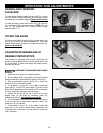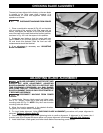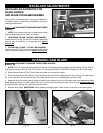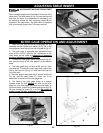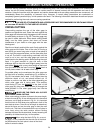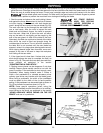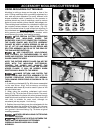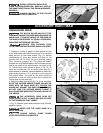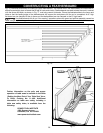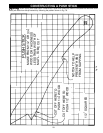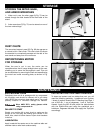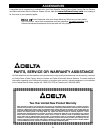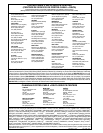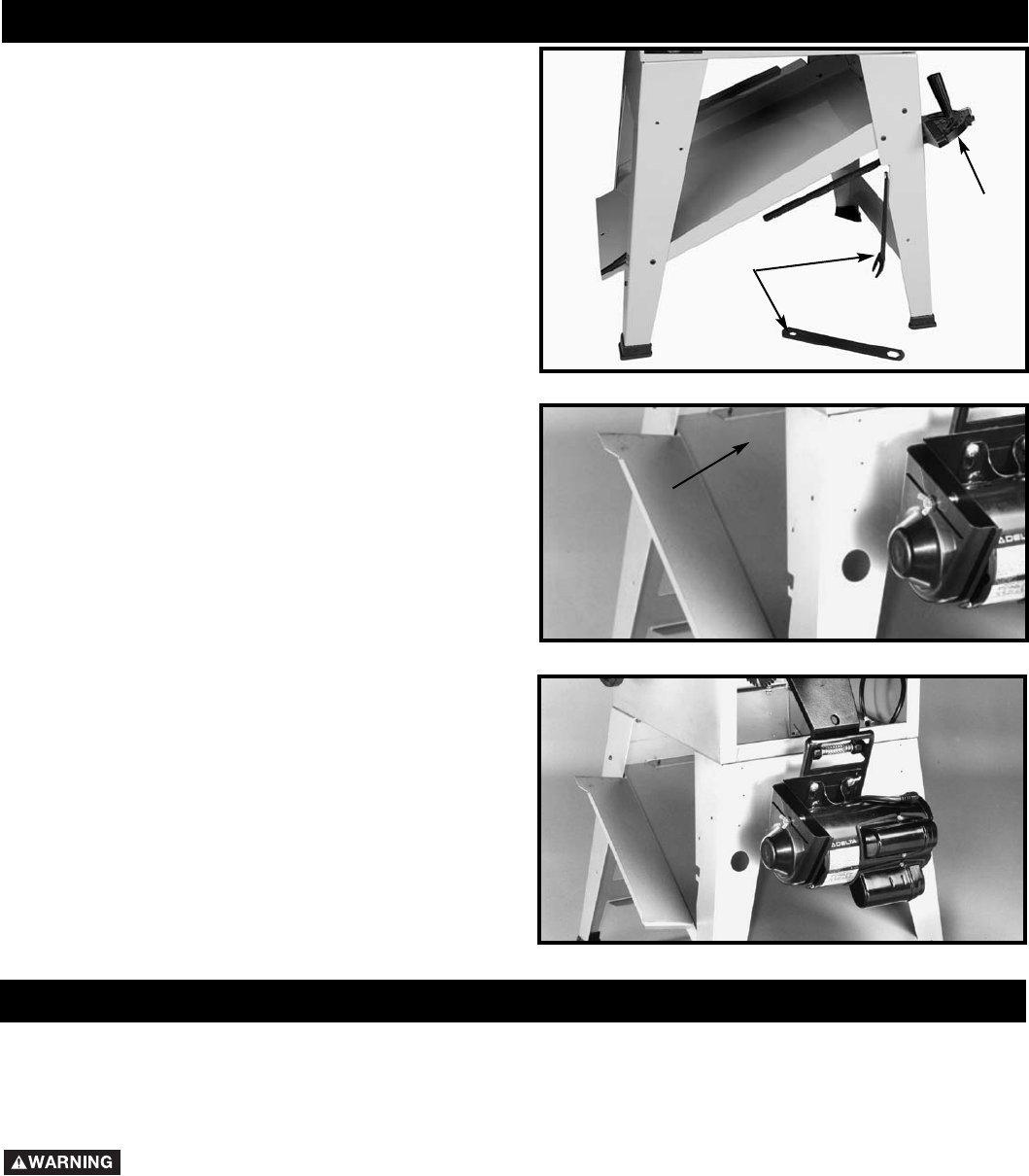
30
MAINTENANCE
KEEP MACHINE CLEAN
Periodically blow out all air passages with dry compressed
air. All plastic parts should be cleaned with a soft damp
cloth. NEVER use solvents to clean plastic parts. They could
possibly dissolve or otherwise damage the material.
Wear ANSI Z87.1 safety glasses while
using compressed air.
FAILURE TO START
Should your machine fail to start, check to make sure the
prongs on the cord plug are making good contact in the
outlet. Also, check for blown fuses or open circuit breakers
in the line.
LUBRICATION
Apply household floor paste wax to the machine table and
extension table or other work surface weekly.
Fig. 79
Fig. 80
STORING THE MITER GAGE,
AND ARBOR WRENCHES
1. When not in use, the miter gage (A) Fig. 79 can be
stored through the hole located at the front side of the
stand.
2. Arbor wrenches (C) Fig. 79, can be stored on one of
the two notched legs.
DUST CHUTE
The saw stand support panel (D) Fig. 80 also serves as
a natural built-in dust chute. This dust chute (D) allows
the sawdust to conveniently escape out the rear of the
saw stand and away from the work area.
D
C
A
Fig. 81
REPOSITIONING MOTOR
FOR STORAGE
When the saw is not in use, the motor can be
repositioned so that it hangs straight down at the rear,
enabling you to move the saw against a wall. This can
be accomplished by removing the belt and repositioning
the motor and motor mounting plate, as shown in Fig.
81.
STORAGE
PROTECTING CAST IRON TABLE FROM RUST
To clean and protect cast iron tables from rust, you will
need the following materials: 1 pushblock from a jointer,
1 sheet of medium Scotch-Brite™ Blending Hand Pad, 1
can of WD-40
®
, 1 can of degreaser, 1 can of TopCote
®
Aerosol. Apply the WD-40 and polish the table surface
with the Scotch-Brite pad using the pushblock as a
holddown. Degrease the table, then apply the TopCote
®
accordingly.



